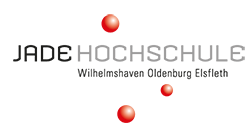A. Medical Electronics and Image Processing
Medical Image Processing
Gábor Kertész
Topics of the course are image processing fundamentals and object recognition:
- Image representation
- Spatial filtering
- Greyscale and colour images
- Morphological image processing
- Image segmentation
- Colour object recognition
The course has theoretical as well as practical parts.
Artificial Intelligence and Biomedical Engineering
Prof. Dr. Yvo Marcelo Chiaradia Masselli
The course aims at presenting the most commonly used techniques of Artificial Intelligence as well as its applications in Biomedical Engineering, such as bioelectric signal processing, pattern recognition and automatic development of diagnostic. Neural Networks and Fuzzy Logic will be treated as the main topics throughout the course. By the end, the student will be able to project and implement, in specific softwares, solutions for typical problems on the field.
Biomedical Applications of Transducers, Microcontrollers and Related Electronics
Assoc. Prof. Dr. I. Cengiz Koçum, Mehmet Yüksekkaya, Ph.D.
Sensors and transducers are the eyes and ears of modern measurement instrumentation and control systems. Many types of machines and also medical instruments depend on transducers and sensors to provide input data about the environment. Widely used in both analog and digital instrumentation systems, sensors provide the interface between electronic circuits and “real world” where things happen.
Nevertheless, all the data have to be processed. The most common technology consists in the use of microcontrollers. So this course also discusses the programming model and basic features of microcontrollers and their application to biomedical instrumentation.
The goal of this course is to provide a representative overview of sensors, how they work, how they are applied and what basic electronic circuits are needed to support them. Further lectures and laboratory experiments cover the basic principles of hardware and software design for a microcontroller based system and interfacing biomedical sensors to microcontrollers are emphasized.
Course Outline:
Sensor and transducer principles. Common transducers for biomedical applications. Overview of PIC microcontroller, Basic MikroC programming for PIC microcontroller. Interface and related electronics of sensors and I/O devices for microcontrollers. Design of microcontroller systems for medical use such as design of a heart beat monitor and a digital thermometer.
| Date | Course Syllabus |
|---|---|
| 11.09. | Transducer, sensor and related circuits with some applications. |
| 12.09. | Introduction to microcontrollers and embedded Design. PIC microcontrollers and MikroC programming language. Designing simple microcontroller applications. |
| 13.09. | Amplifier basics. Transducer to microcontroller interface and related electronics. Analog to Digital conversion using microcontroller. |
| 14.09. | A conductivity meter and digital thermometer will be built using microcontroller. |
